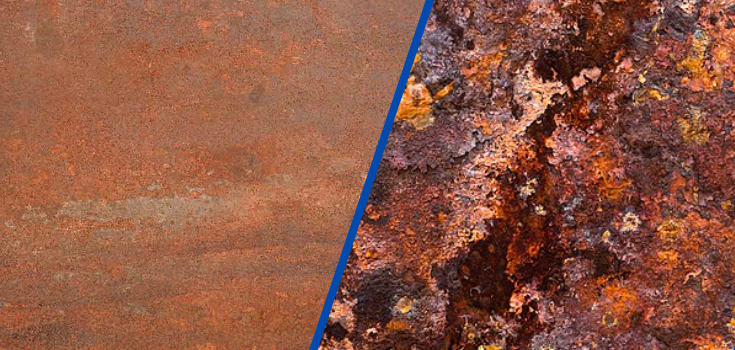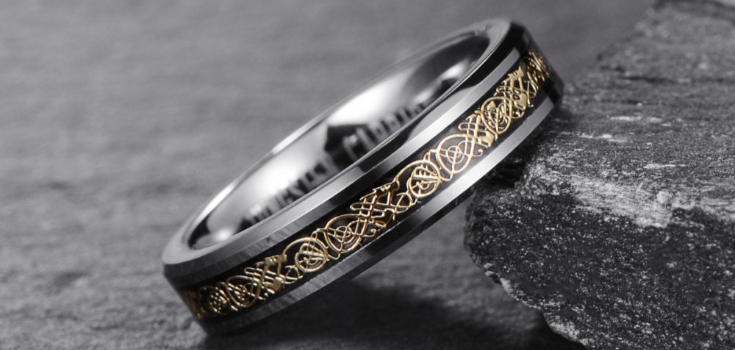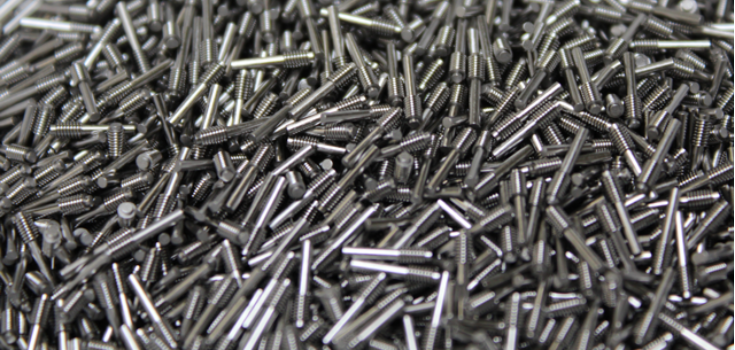If you’re thinking about using tungsten, you might ask, “Does tungsten rust?” It’s important to know how it holds up, especially in wet or high-heat conditions.
This post will explain what tungsten is, whether it rusts, and why it’s known for resisting corrosion. You’ll also learn what can affect its durability and how it compares to other metals.
What is Tungsten?
Вольфрам is a strong, heavy metal that can handle extreme heat without melting. It has the highest melting point of any metal, which is 3,422°C. It is almost twice as dense as steel; that’s why it is a good choice when you need something with high mass.
It’s also very hard, almost as hard as diamond when alloyed, and forms a protective layer at high temperatures that helps prevent rust. Because of these qualities and its reasonable cost, tungsten is used in factories, jewelry, and many other applications.
Does Tungsten Rust?
Pure tungsten doesn’t usually rust or tarnish. That’s because of its natural strength and resistance to damage.
This makes tungsten a great choice for things like jewelry. For example, many people wear tungsten rings because they keep their shine and don’t rust easily.
But when tungsten is mixed with other metals, it can be a different story. If those other metals can rust, the tungsten alloy might start to oxidize, or tarnish over time.
Difference Between Rust and Corrosion

Rust is a type of corrosion that only happens to iron and metals that contain iron, like steel. It forms when these metals touch water and air.
Corrosion is a broader term. It means any metal breaking down because of a chemical reaction with its surroundings. Rust is one type of corrosion, but there are other types too, like tarnishing or oxidation.
Here are the common metals that can oxidize:
Silver: Tarnishes quickly when it comes in contact with air.
Iron: Rusts easily when it’s wet.
Титан: Doesn’t rust, but can form a dull layer.
Gold: Usually resists tarnish, but gold alloys can discolor.
Cobalt: Can oxidize and change on the surface.
Why Tungsten Resists Corrosion?

Tungsten resists rust and corrosion because of how it reacts with oxygen. Unlike many other metals, it doesn’t react much with air at room temperature.
Its high melting point helps it stay strong even in extreme heat. When exposed to air, tungsten forms a thin oxide layer on its surface. This layer acts like a shield, protecting the metal underneath and stopping more rust or corrosion. Unlike metals like iron, which continue to rust if the protective layer is damaged, tungsten’s oxide layer helps it stay safe from further damage.
Possible Causes of Rusting on Tungsten
While tungsten is known for being rust-resistant, certain factors can still cause it to rust. Here are a few things to watch out for:
Tungsten Rings and Alloys: Tungsten alloys are more likely to rust. Although these alloys are affordable and perform well, they don’t resist rust as much as pure tungsten does.
Environmental Conditions: Rust happens when metals are exposed to both oxygen and moisture. If you leave tungsten alloy in a place with a lot of moisture and air for a long time, it could start rusting.
Extreme Heat Conditions: If pure tungsten is exposed to high temperatures between 600°C and 800°C, it can begin to tarnish. Below these temperatures, tungsten stays rustproof.
Iron Content: Iron rusts easily when exposed to moisture and oxygen. If your tungsten has impurities like iron, it will start rusting as soon as it comes in contact with water and air.
Which Tungsten Alloys Will Oxidize?
Your pure tungsten ring won’t rust unless it’s exposed to very high heat (over 600–800°C or 1,112°F). If you choose a jewelry-grade tungsten ring, it’s made with nickel alloys, so it won’t rust or tarnish.
But if you for an industrial-grade tungsten ring with cobalt alloys, it’s more likely to rust and tarnish. For the best durability, make sure you pick a jewelry-grade tungsten ring with никель.
Applications of Tungsten due to Rust-Resistant Properties

Tungsten’s rust-resistant qualities make it useful in many different areas, such as the following:
- Jewelry, such as tungsten rings
- Bulb filaments
- X-ray tubes
- Electrodes
- Penetrating objects
Tungsten in Comparison to Other Metals
The table below shows the differences between tungsten and some other metals:
| Металл | Oxidation Behavior | Устойчивость к коррозии |
| Вольфрам | Высокий | Forms stable high-temperature WO₃ layer |
| Железо | Низкий | Rusts (Fe₂O₃) in damp air |
| Нержавеющая сталь | Moderate to High | Chromium oxide layer resists rust |
| Алюминий | Умеренный | Forms Al₂O₃ layer that stops further oxidation |
| Титан | Высокий | Forms TiO₂ layer in most environments |
Заключение
After reading this blog, I’m sure we have answered your question, “Does tungsten steel rust?”. Tungsten is a great choice because it resists rust and corrosion. It can handle tough environments without wearing down. While it’s not totally immune to corrosion, tungsten is still a reliable option for many industries.
At DEK, we can help you use tungsten in custom CNC machining services. We’ll work with you from start to finish, and we will make sure each part fits your needs perfectly. Get a free quote сейчас!
Вопросы и ответы
Does tungsten rust in water?
No, tungsten doesn’t rust in water. It’s very resistant to corrosion and oxidation, so whether it’s fresh or saltwater, it won’t rust or break down. Its strength and ability to resist moisture make it a great choice for jewelry and industrial uses.
Does tungsten rings rust?
Most rings are made from tungsten alloys, which means tungsten is mixed with other metals like carbide and nickel.
The problem happens when tungsten is mixed with metals that can rust. In that case, your tungsten ring might rust more easily.
Does tungsten carbide rings rust?
Tungsten carbide rings don’t rust. Tungsten carbide is very resistant to oxidation, corrosion, and tarnishing, so your ring will keep its appearance over time.

